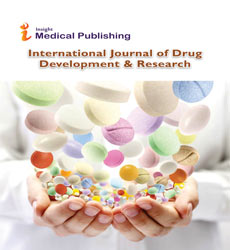Abstract
Degradation and in Vitro Biocompatibility studies of Citric acid based polyesters
The suitability of a polymer for a particular application is dependent on its physical and chemical properties. The monomers used play a significant role in the synthesis of polymers for biomedical applications. In the present work two copolyesters, poly (1,12-dodecanediol citrate-co-1,12- dodecanediol sebacate) (PP1); poly (1,12-dodecanediol citrate-co-1,12- dodecanediol itaconate) (PP2) were synthesized by catalyst-free melt polyesterification using monomers - citric acid, sebacic acid, itaconic acid and 1,12-dodecanediol. The polymers exhibited mechanical and thermal properties that made them suitable candidates for degradation and biocompatibility studies. In the present work the degradation and in vitro biocompatibility studies were carried out. The degradation and biocompatibility data support the potential use of the elastomers in tissue engineering applications as well as other clinical procedures that may require a biodegradable elastomeric implant.
Author(s): J. Margaret Marie, A. John Maria Xavier, K. Saravana Murali, S. Sivasubramanian, R. Nanthini
Abstract | Full-Text | PDF
Share this

International Journal of Drug Development and Research peer review process verified at publons
Abstracted/Indexed in
- Google Scholar
- Genamics JournalSeek
- China National Knowledge Infrastructure (CNKI)
- CiteFactor
- Scimago
- Directory of Research Journal Indexing (DRJI)
- WorldCat
- Publons
- MIAR
- ResearchGate
- University Grants Commission
- Secret Search Engine Labs
- Euro Pub
Open Access Journals
- Aquaculture & Veterinary Science
- Chemistry & Chemical Sciences
- Clinical Sciences
- Engineering
- General Science
- Genetics & Molecular Biology
- Health Care & Nursing
- Immunology & Microbiology
- Materials Science
- Mathematics & Physics
- Medical Sciences
- Neurology & Psychiatry
- Oncology & Cancer Science
- Pharmaceutical Sciences


